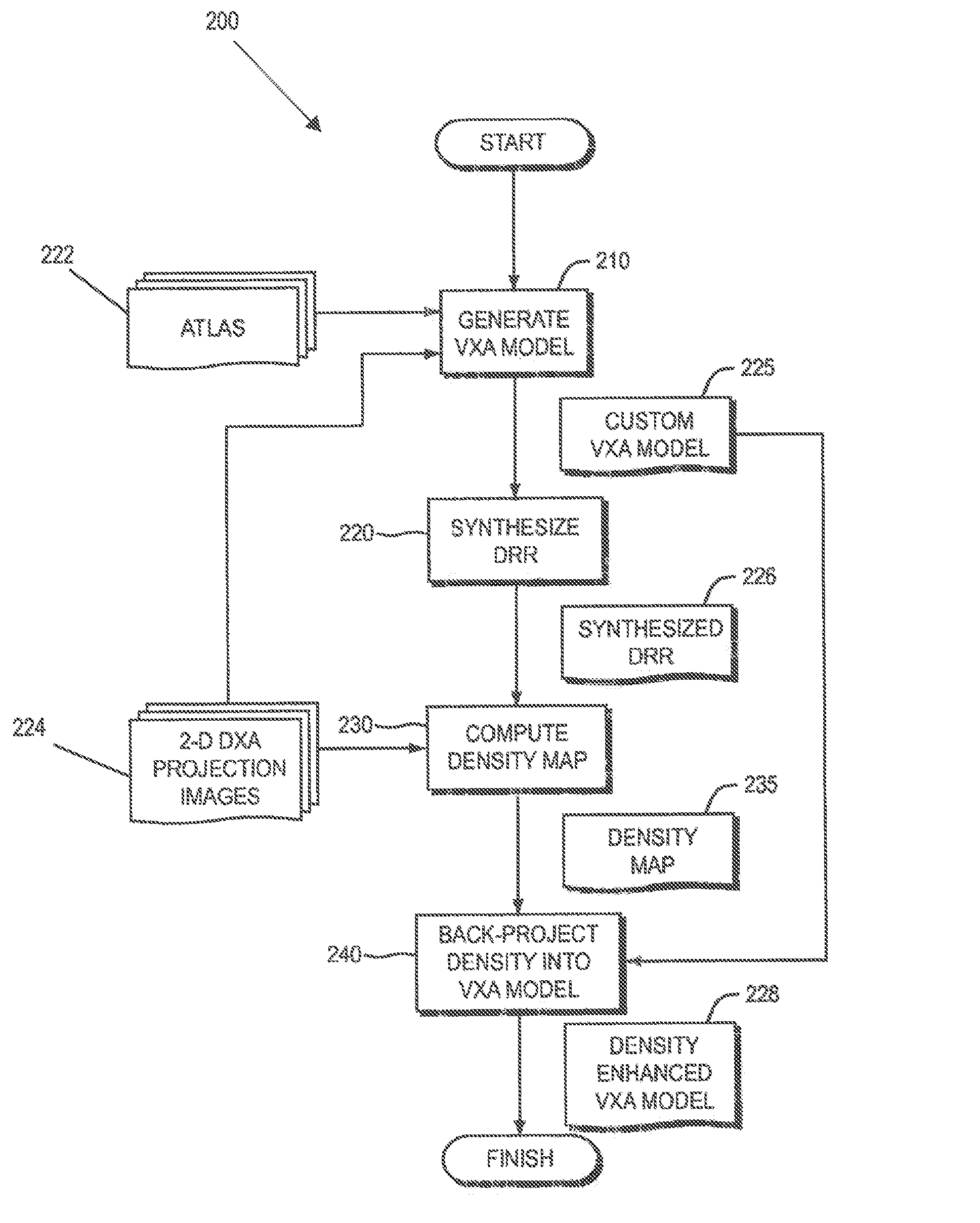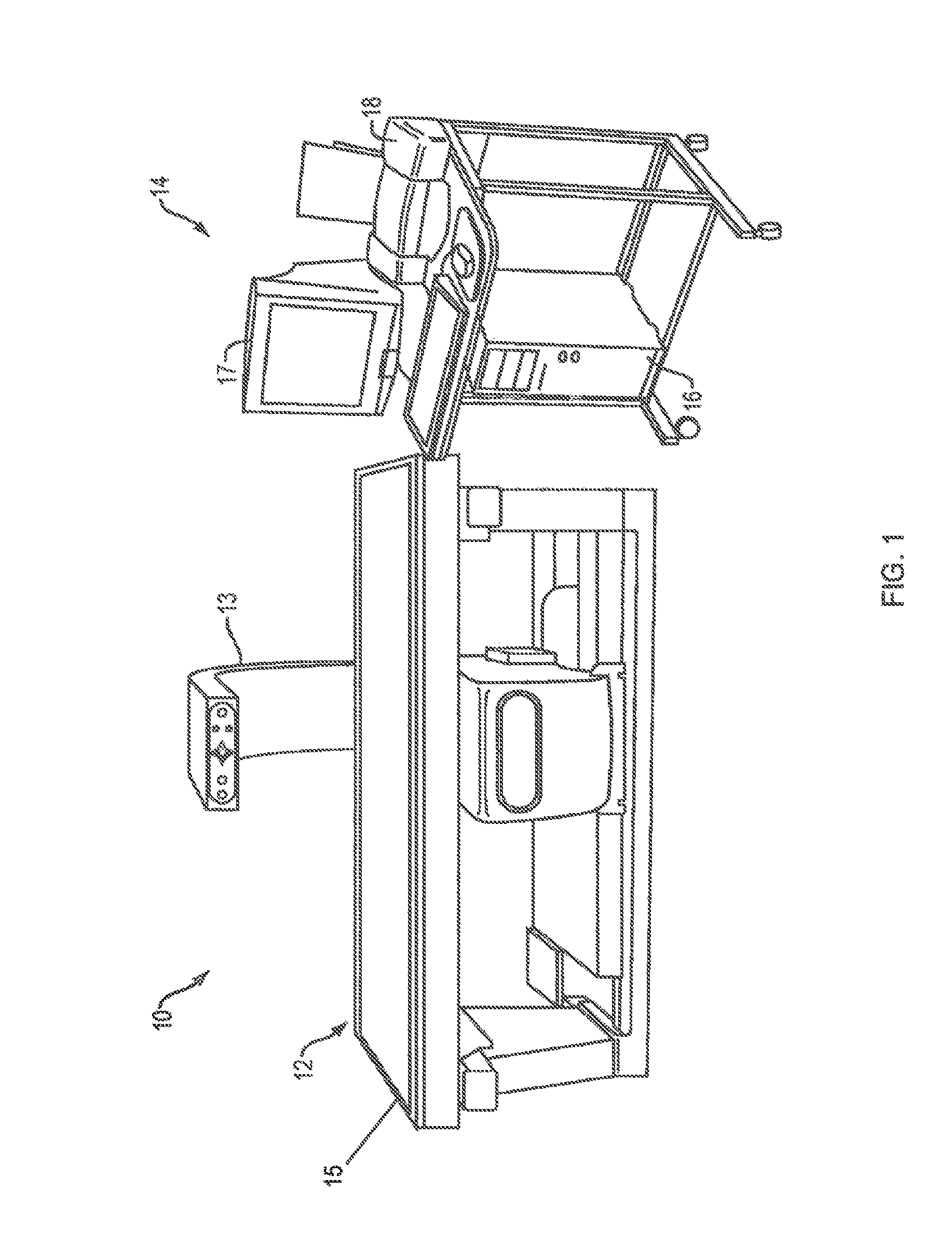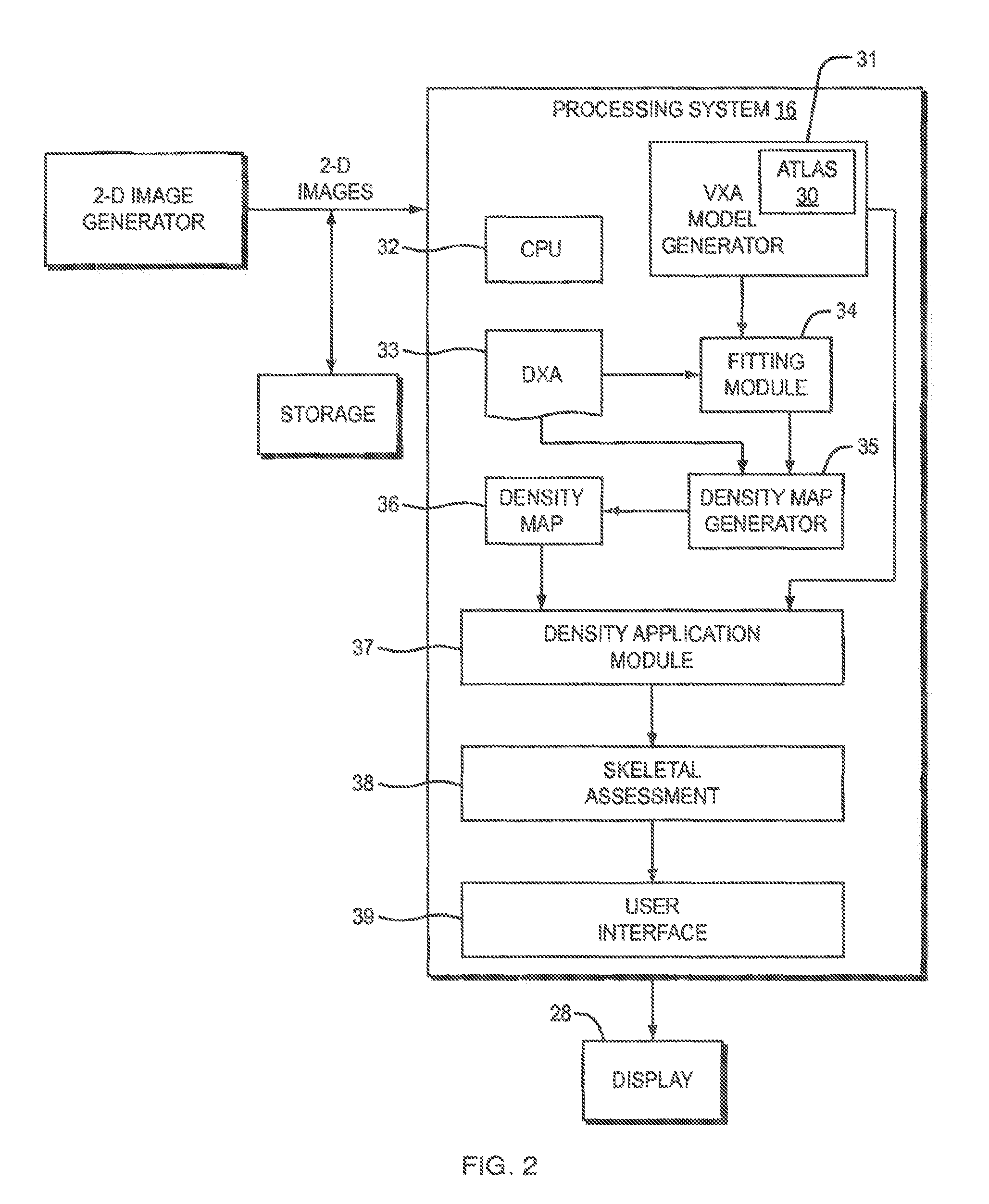System and method for generating enhanced density distribution in a three dimensional model of a structure for use in skeletal assessment using a limited number of two-dimensional views
a three-dimensional model and enhanced density technology, applied in the field of skeletal assessment, can solve the problems of outweighing the patient's, failing and unable to provide important 3-d information about the volumetric density and spatial geometry of imaged skeletal structures. , to achieve the effect of reducing patient exposure, equipment cost and examination tim
- Summary
- Abstract
- Description
- Claims
- Application Information
AI Technical Summary
Benefits of technology
Problems solved by technology
Method used
Image
Examples
Embodiment Construction
[0015]According to one aspect of the invention it is realized that a customized three-dimensional model of an imaged structure may be further transformed by applying one or more different gains to volume elements of the model to provide a density enhanced 3-D model of the imaged structure. Such a density-enhanced 3-D model of the image structure has been found to have spatial geometry and volumetric density information similar in quality to a QCT representation of the imaged structure. The gains that are applied to the volume elements of the 3-D model are determined by relating density information from projection images of the customized 3-D model to density information from one or more DXA images of the imaged structure. The present invention therefore provides improved skeletal assessment using 2-D images, thereby reducing patient exposure, procedure complexity and equipment cost.
[0016]Skeletal assessment using models of the present invention may be performed in a variety of envir...
PUM
| Property | Measurement | Unit |
|---|---|---|
| density | aaaaa | aaaaa |
| bone mass density | aaaaa | aaaaa |
| projection angle | aaaaa | aaaaa |
Abstract
Description
Claims
Application Information
 Login to View More
Login to View More - R&D
- Intellectual Property
- Life Sciences
- Materials
- Tech Scout
- Unparalleled Data Quality
- Higher Quality Content
- 60% Fewer Hallucinations
Browse by: Latest US Patents, China's latest patents, Technical Efficacy Thesaurus, Application Domain, Technology Topic, Popular Technical Reports.
© 2025 PatSnap. All rights reserved.Legal|Privacy policy|Modern Slavery Act Transparency Statement|Sitemap|About US| Contact US: help@patsnap.com



